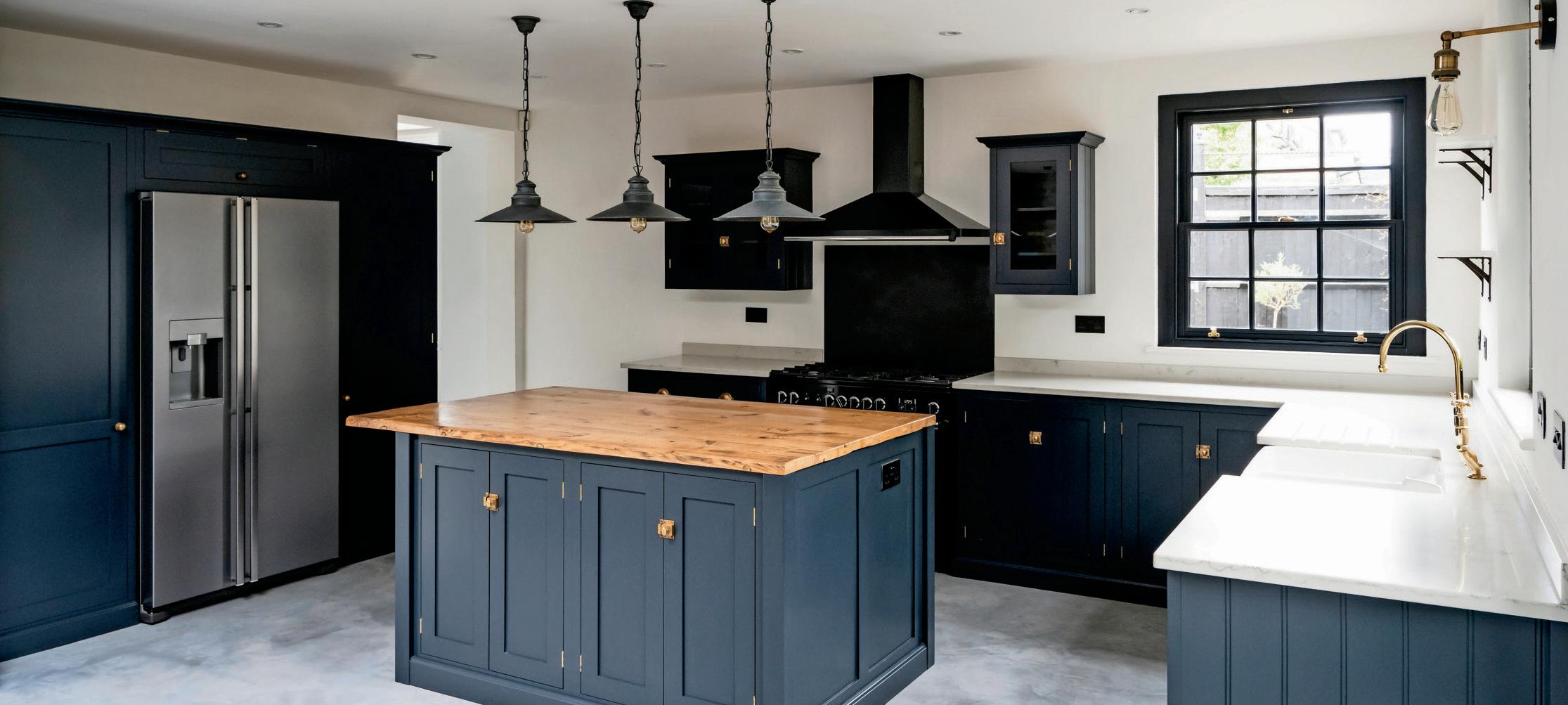
thingsCarrying too far isn’t always a bad thing, especially for a Mount Carroll company that prides itself on productsmaking that go the distance


thingsCarrying too far isn’t always a bad thing, especially for a Mount Carroll company that prides itself on productsmaking that go the distance
FAST. RELIABLE. ALWAYS ON. EXPERIENCE OUR PREMIER INTERNET SERVICE.
Northwest Illinois’ largest, locally-owned internet provider, JCWIFI, is committed to providing dependable wireless internet from farm homes to lake homes across the region. We proactively manage the network to stay ahead of any issues that may arise. Whether working from home or just relaxing with family, JCWIFI has you covered for internet service you can rely on.
What you can expect:
aNo lag, buffering or service loss during video calls, online gaming, streaming and system updates aThe use of multiple, in-home devices online at the same time without “stealing” each other’s bandwidth aA plan that fits your needs and budget
Fast. Reliable. Always on internet service in Stephenson, Jo Daviess and Carroll counties.
451 West South Street | Freeport, Illinois 61032 | 815.233.2138 | jcwifi.com
WANT
Contact us. With cutting-edge technology and upgrades, JCWIFI ensures that ALL of our plans have the service that you and your family need and expect.
Call 815.233.2138 or visit jcwifi.com to get connected or to upgrade a current plan.


 Heintzelman
Heintzelman
Contact Jill Reyna at 815-631-8774 or jreyna@saukvalley.com

A Mount Carroll boutique gives people a place where they can walk in looking for a relaxing experience and walk out feeling happy.
Chadwick is home to a Classic success story: A business owner that turns cars into couches. 24

Articles and advertisements are the property of Sauk Valley Media. No portion of Carroll County Living may be reproduced without the written consent of the publisher. Ad content is not the responsibility of Sauk Valley Media. The information in this magazine is believed to be accurate; however, Sauk Valley Media cannot and does not guarantee its accuracy. Sauk Valley Media cannot and will not be held liable for the quality or performance of goods and services provided by advertisers listed in any portion of this magazine.
People have been coming back to a Savanna restaurant for 50 years to enjoy flavors from across the ocean and south of the border. 30
Jack Kromer is happy chipping away at his projects, creating pieces that — like the techniques he uses — will stand the test of time.
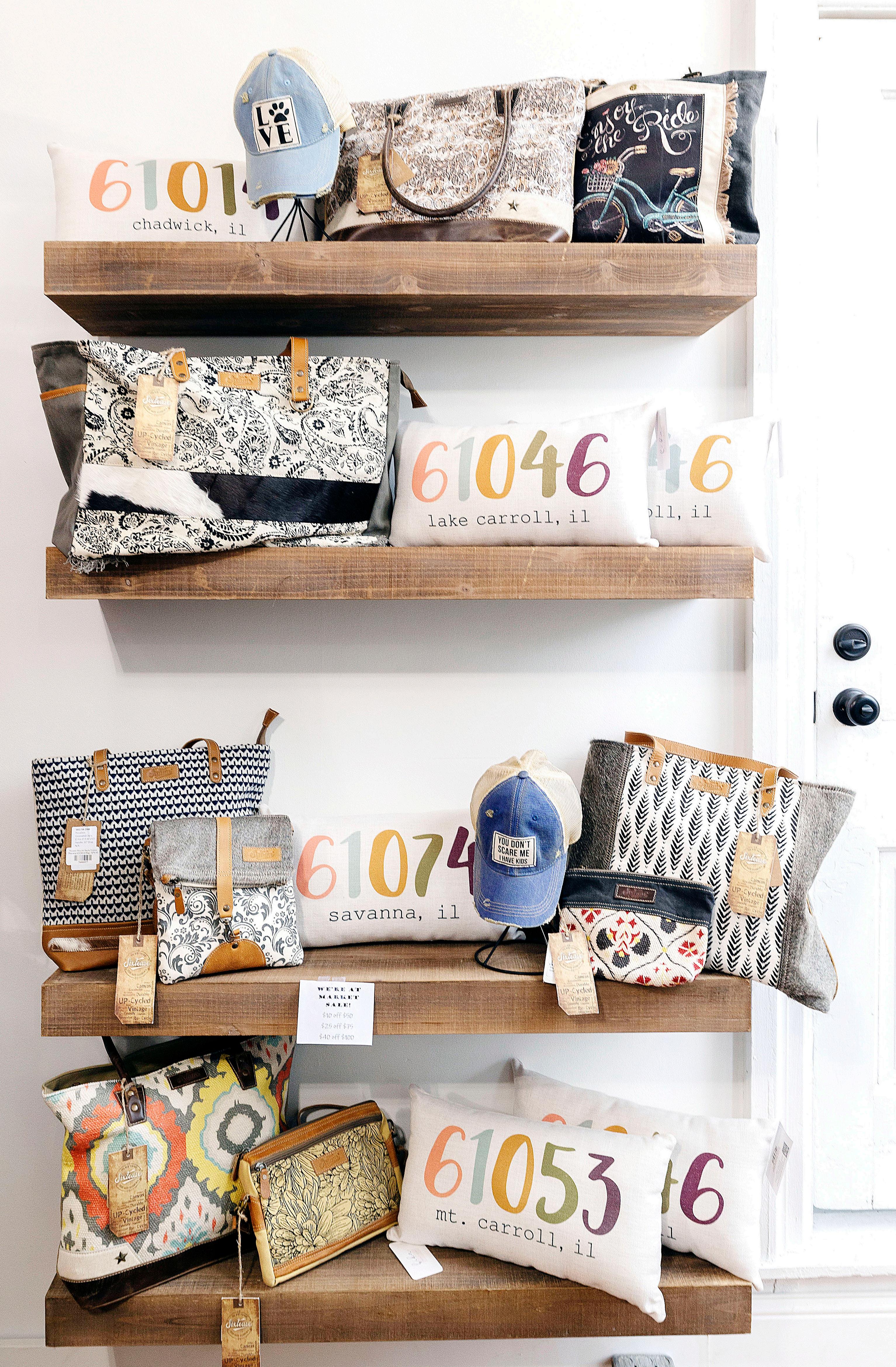
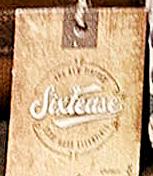




arrie Prowant has made a living helping women look their best. Now she’s helping them feel their best, too.
For most of her working life, Prowant’s focus has been their hair — she’s been a stylist and a cosmetology educator, and has her own salon, Hair by Carrie, in downtown Mount Carroll. These days though, she’s giving her customers more than just a new ‘do. Now they can be tressed — and dressed — for success, thanks to a boutique she recently opened.
After 2 years at the helm of Hair by Carrie, Prowant opened Fika Boutique in September, where she sells clothes, jewelry, and small gift items. Fika (pronounced “Fee-kuh”) originally started in her salon as a sort of side business, but it was such a hit with customers that she expanded to the shop next door.
Even though she’s expanded her business, she’s still sticking with her original concept: Giving customers something that will set them apart by offering a smaller inventory of select goods that come and go.

FIKA cont’d to page 6
Prowant said she wants to bring the kinds of pieces to her shop that you won’t find elsewhere.
“We have small runs, where we only have about six of each item. Once they’re gone, they’re gone,” she said.
“The idea is, you don’t want to see yourself walking down the street wearing the same thing everyone else is wearing.”
ALEX T. PASCHAL/ APASCHAL@ SHAWMEDIA.COM
Want to make a style statement? Fika Boutique can help, from head to toe and in between — sunglasses, earrings, handbags, boots and more. “There are always new things coming in,” said Lynette Forth, who works at the store.



“Around here, living in this community, we don’t really have a ton of options for shopping,” Prowant said. “I wanted to bring in unique pieces that you wouldn’t get anywhere else. We have small runs, where we only have about six of each item. Once they’re gone, they’re gone, we don’t bring them back. The idea is, you don’t want to see yourself walking down the street wearing the same thing everyone else is wearing.”
The clothes are geared toward a wear-to-work fashion, “something that can make someone feel pretty,” Prowant said — dressed up but comfortable at the same time.




“It’s something that’s feminine, pretty, different, unique, and that is timeless,” Prowant said. “It isn’t so trendy that next season you can’t re-wear it. That makes you feel more unique than other people in your office.”
Loosely defined, Fika is Swedish for a happy and relaxing coffee break, and it’s the first part of that definition that she wants to define the boutique: a place where customers will have a happy and relaxing experience by finding selections they admire and fashions that inspire.
When the COVID-19 pandemic took a toll on traffic to the salon, Prowant sought her own cure to the slowdown in business: She sought to build a new brand, utilizing her talents and time to get her through the down time until things started to pick up again. How could she find another way to help people look better and feel better? She came up with the idea of adding a small selection of clothes.
FIKA cont’d from page 6



“I wanted everybody to feel better when they left than when they came in,” Prowant said. “The clothing kind of fell into that. I needed something that was a little different than hair styling.”
The boutique started out small, with only three shirts hanging on a rack when she was able to open the salon back up — but it didn’t take long before those shirts were off the racks. Customers wanted to know where she got her merchandise and when she’d be bringing more in, so she kept adding more, until there wasn’t enough room.
Fortunately for Prowant, by mid2022 she found a solution to her space problem. The building next door had changed owners, and, having been long fascinated with its exterior, she asked whether it would be available for her to rent. With an eager tenant waiting in the wings, a deal was made and Prowant moved her burgeoning boutique out of the salon and into a home of its own.
FIKA cont’d to page 8
Carrie Prowant had her eye on the building next door to her salon even before she opened a boutique there, and when it came up for rent, she knew the time was right to expand her business footprint. “It just has a lot of character,” she said. “I love the brick walls. I love the big windows, and the outside of the building looks real cool. It feels kind of homey and classy.”
 ALEX T. PASCHAL/APASCHAL@SHAWMEDIA.COM
ALEX T. PASCHAL/APASCHAL@SHAWMEDIA.COM

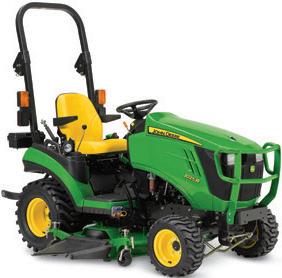













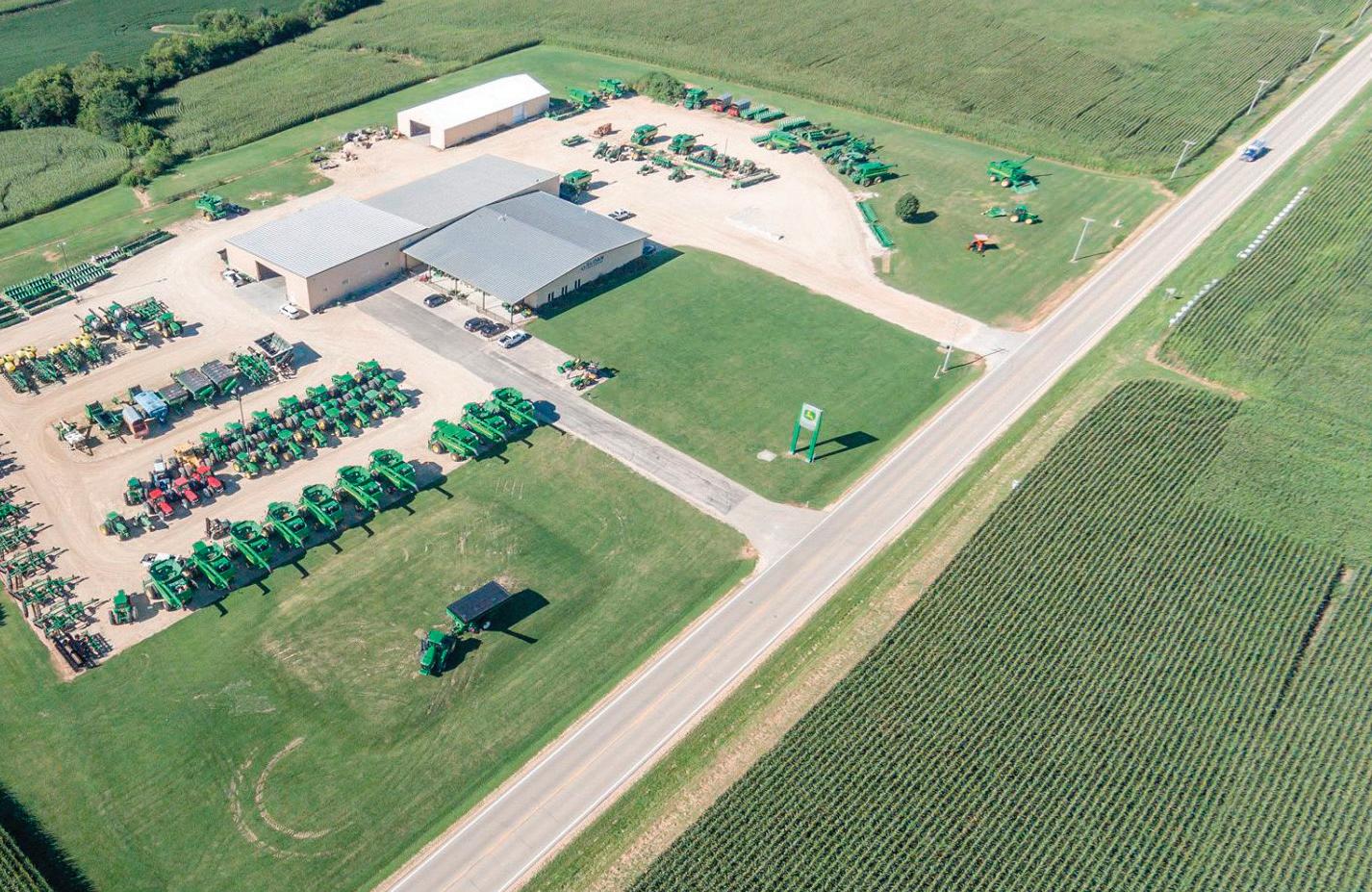
decorative ceiling art with plant vines wrapped all
“It just has a lot of character,” Prowant said. “I love the brick walls. I love the big windows, and the outside of the building looks real cool. It feels kind of homey




Tops have been a big seller, and make up a large part of the store’s inventory.


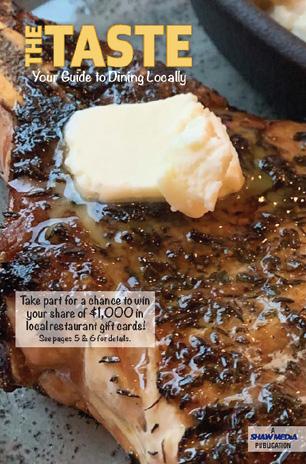


When it comes to what to stock, Prowant likes to do her homework, finding out more about the businesses whose products she carries. She travels to market shows throughout the nation, including a week in January at a show in Dallas, and has been to others in Chicago and Nashville. While style is always top of mind with her stock, she likes to support small, women-owned businesses — helping to give them a chance to build their businesses like she built hers.
Lynette Forth enjoys working behind the boutique’s front counter and putting out new shipments when


“There are always new things coming in,” Forth said. “I love seeing all of the new stuff. I just love Carrie’s sense of style. She always picks great quality items, and she’s super sweet to work for.”

The store also carries the Katie Loxton brand of bags, pouches and key chains made with colorful vegan leather, as well as its line of custom jewelry. The London-based brand had long been an interest of Prowant’s since she started the boutique, and the new store gave her the room she needed to expand the brand.


“I was super excited when we finally got this,” Prowant said.





In addition to fashion and jewelry, the shop also offers small gift items — greeting cards, puzzles, cocoa bombs for hot coffee and milk, and even items with a local feel such as pillows designed with a town’s zip code. The pillows include towns in Carroll County, and even Lake Carroll. The Mount Carroll pillows are a big seller.

“Another thing that I wanted this place to be is one for someone to pop in and get a quick birthday present for someone and be able to shop locally,” Prowant said. “They’re nice, quality products.”

Anything to brighten a wardrobe. Anything to brighten someone’s day. That’s what Prowant’s strives for, and having the boutique is her way of making it all happen.
“I want to make an impact on someone else’s life,” she said. “The reason why I became an educator in the cosmetology industry: I wanted to make an impact on other people’s lives. Now I have employees, and they have sent me texts about how customers love this or that, and feels good being here. That’s what I want. That’s the thing that’s making it go. People are finding items of clothing that are making them feel pretty, and I have employees who feel proud to be here, and excited about being here.” n





he 1950s was a golden era for the passenger car — a marriage of power, style and luxury that carried post-war Americans across town and across the country on a growing network of highways and interstates. Manufacturers made nearly 60 million cars during the decade, but in the years since, most of those chrome horses were put out to pasture, ending up in junk yards or left to rust away. While some managed to survive, about the only place you’ll see a classy chassis now is in a car show or auction.


You might also find one in an office or living room — well part of one, anyway.
COUCHES cont’d to page 12


Some examples of classic rides that got a makeover from Classic Couches. From top: A VW van was converted into a bar, with Kegorator and tap. A ‘57 Chevy that went from car to couch. This piece, made from ’57 Chevy, comes with heated and massaging recliners. This dinner booth was made from a 1957 Chevrolet Bel Air. Each item Classic Couches makes is built and restored from original auto parts.



If you do, there’s a good chance a Chadwick business hand a hand in putting it there, and the hands behind that handiwork belong to Josh Kreuder, who’s been turning vintage car parts into furniture for years at his business, Classic Couches.

Want a reception desk that looks like a Ford Mustang? A cruise ship food counter that looks like a food truck? Give Kreuder a call — a lot of people have, near and far.
Even though the parts he uses have long since stopping taking road tips, his projects still put on a lot of miles, with pieces ending up in locations around the world. Where will the next piece end up, and what will it be? Only time will tell.

“I’m always trying to come up with that next great thing,” Kreuder said. “You never know what’s next. It’s always something different.”



Creating couches from car parts takes time, effort and legwork to track down the pieces. You just don’t run down to the lumber store and tell the clerk “I need the rear end of a ’57 Chevy.”



When he finds what he needs and gets it back to his shop, that’s when the work begins. Parts are cut off and removed, it’s reworked and redesigned to accommodate seats being put into it, the chrome gets a shine and the piece gets a fresh coat paint.
COUCHES cont’d to page 13









The ‘57 Bel Air is one of the most popular classic cars of the decade, and Kreuder sees it as being one that’ll continue to have a high demand.
“That’s the quintessential classic car,” he said. “Oddly enough, the ‘57 Ford outsold that. But when was the last time you saw a ‘57 Ford? I can’t even tell you, and I look at classic cars every day. They just saved them, and everyone thought they were the classic.”
Kreuder’s seen a lot of cars, some mostly intact, some in pieces, but rarely has he seen something that he can’t work with. He can turn just about anything into something. Front ends become serving counters, back ends become a couch, even just two-sides of a car can become L-shaped seating. He can even use the whole body, turning it into three-sided sectional seating, couches opposite of one another, or even smaller counters and desks.
Most of Kreuder’s clientele are businesses that commission pieces, but some of his works find a home in someone’s house, maybe in a man cave — “people who can afford whatever they want,” Kreuder said.

One recent project took a Ford Mustang body and converted it into a shell for an office desk, with working headlights and tail-lights. The client? Not what one would expect: It’s going to a synagogue in New Jersey.

“You would think that shortening a Ford Mustang would be easy, but it is not,” Kreuder said. “You think about why in the world someone wants something like this, and sometimes I really have no idea.”

Working with classic cars is something Kreuder, a lifelong Carroll County native, became enamoured with after seeing the before-and-after of a restoration process done to his grandfather’s car. Eric Smith, who started what would become Classic Couches in 1982, was commissioned for that project. Kreuder went on to restore some cars in college, but soon discovered that wasn’t what he really wanted to do.
When Smith decided to branch out from basic restoration projects, Kreuder expressed an interest in taking over Classic Couches from him, and it became his in 2003. To this day, Kreuder considers Smith a mentor in the restoration business.

Couches aren’t the only classics Kreuder works on. He also restores other rides — kids rides, the coin-operated kind that used to be found in stores and malls. Walking into his shop is like taking a trip back in time, and you can pick your ride: a rocket ship or rocking horse, a sports car or power boat — even an elephant.




“It started with the sole intention of creating, what we’ll call, functional art from classic cars — ’57 Chevys and stuff like that,” Kreuder said. “It evolved into memorabilia restoration. So a guy buys a ’57 Chevy car couch, loves it, has a good experience, but you only need so many couches in your house, right? [Smith] decides that he can sell him an old gas pump to put next to it, or sell him a restored soda machine, or something like that. Sometime in the mix, he started doing that.”
The shop’s front room is decked out with retro signs and pictures, helping keep Kreuder and his crew inspired — old signs for car parts and accessories, an old brass movie theater poster frame, even an old sign that once hung on the front of the Chadwick Library.
Stepping into the shop can be a bit like stepping back in time, and it’s not just older customers who get a kick out of it; younger ones do, too.
“I think for a lot of people, the ’50s is quintessential Americana,” Kreuder said. “I think it’s the post-war, call it the happy days, maybe? What’s interesting is, you’d think as people get older, the guys Eric was selling stuff to 40 years ago, they had ’57 Chevys and that stuff in high school. I’m 40, and guys in my class were driving IROC Camaros and stuff like that. You’d think that common sense would tell you that the interest would just follow the age of the people, but it really doesn’t. I hardly ever get calls for a ’74 Camaro, it’s just ‘50s stuff.”
The ’50s continues to be an era that spans generations, the most notable example being the classic diner industry. Kreuder’s clients include Sonic Drive-In and Sunliner Diners in Gulf Shores, Alabama, and Pigeon Forge, Tennessee. Several tourist attractions with retro exhibits also have called Kreuder up, including a few in Las Vegas and Six Flags amusement parks in California.
America’s car culture has travelled around the world, too. He’s had clients from Europe, western Asia, Paris, Belgium, and even a restaurant just a short walk away from the Red Square in Moscow.
Some of his pieces get to move again, but on the high seas instead of the highways. They adorn rooms on cruise ships, including the likes of Carnival, Royal Caribbean and Norwegian. A recent piece, made from an old food truck, was refurbished into a food counter that will be on Norwegian’s new Viva cruise ship, currently under construction in Venice and scheduled for launch this summer.
Kreuder got to take Smith along for the installation process in Venice, quite a long way away from Chadwick and its population of 400 residents.
“We get there a couple of days early, and we’re having pizza at some little place on a canal in Venice, and you wonder, ‘How in the hell did I end up here?’” Kreuder said.
COUCHES cont’d to page 15
Kreuder has branched off into other restoration projects too. Lately, he’s been putting more time and effort into restoring old kids rides once commonly seen sitting in front of department stores — rocking horses, boats, a ride featuring Disney’s “Dumbo.” One project dates back to the Space Age of the 1960s: a rocket ride that was later affixed with Sputnik stickers (named after the first satellite launched into space, by the Soviet Union in 1957).

Kreuder prefers to work on one project at a time, but he still keeps plenty busy. He had plenty of projects in the pipeline as the calendar turned to 2023, but giving his full attention to each project helps ensure customers get a quality piece.




“This stuff, although anyone can buy it, takes a little effort,” Kreuder said. “It takes effort to find it, it takes effort to figure out what you’re going to do.”


All that effort has paid off for Kreuder, but his success doesn’t come without a lot of time on the clock. It’s not unusual for him to be in the shop 12 hours a day, 7 days a week — but for Kreuder, it’s time well spent. The thought of finding a new gig doesn’t really enter the picture.
“I don’t know what else to do,” he said. “There’s that cliché: If you love what you do, you’ll never work a day in your life.” n
Being there, every minute, or every day. As your hometown electric cooperative, it’s not just our way of doing business, it’s our way of life. And as a member, that means value that goes far beyond the energy we provide, value you can’t really put a price on.


Your source of power. And information.

It would have been easy for some company owners who’ve had the kind of growth with their business that Charles Electronics has had to pick up and move to a bigger community, but not for Tom Charles. The company he runs has been part of Mount Carroll for more than 50 years, and that’s the way he likes it. “I’m happy right here,” he said.
ALEX T. PASCHAL/APASCHAL@SHAWMEDIA.COM
or more than 50 years, Tom Charles has helped make people around the world feel a little bit closer.

From a small facility on the east end of Mount Carroll, Tom and his staff of about a dozen workers roll out wire and reshape rods to make antennas and accessories to carry signals across the miles — from CB’ers passing the time during a long haul, to ham radio operators making shortwaves go a long way, to TV broadcasts coming into our living rooms.
ANTENNA cont’d to page 18
Mobile antennas, CB antennas, radio antennas, TV antennas, antennas for amateur radio — the company sells them all, and more: towers and tripods, mounts for dish antennas, hardware, cables and wiring … the list goes on. If there’s something in the air, chances are a Charles Electronics antenna put it there.
Charles Electronics can be a bustling place at times in an otherwise quiet part of town. Semis and delivery vans rumble in and out of the company grounds, like a carefully choreographed waltz, pulling
Retirement? Not for Joe Tappainer. The 84-yearold machinist has put in more than a decade at Charles Electronics, and he’s still going strong. “I’m addicted to machining and I just can’t quit,” he said.
 ALEX T. PASCHAL/ APASCHAL@SHAWMEDIA.COM
ALEX T. PASCHAL/ APASCHAL@SHAWMEDIA.COM


in, picking up, and heading out of the small town on their way to delivering products that will end up in countries and continents around the world.
Tom, 78, has built up an impressive clientele through the years, with products ending up in projects for clients as big as the U.S. Army and NASA, and he’s also had jobs commissioned by the Crown Prince of Dubai, Sheikh Hamdan bin Mohammed.
But big names are far from the only clients he caters to; there are plenty of people who aren’t crown princes — but regardless of who they are, all of the company’s customers are treated like royalty.
“You never know, when that phone rings, who it’s going to be,” Charles said, but “whether you buy $3, or $30,000, you’ll be treated the same way.”
While most people who give an antenna a passing glance wouldn’t be able to tell where it’s from, the people who make them can, and they’ve seen their work show up in a lot of different places.
ANTENNA cont’d to page 20




































Tom’s wife, Nola Charles, takes care of ordering and other paperwork from her tidy corner of the shop.

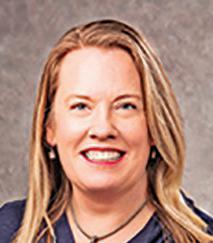


“We sell to a lot of municipalities all over the world,” Charles said. “One of our workers, Terry Bausman, was on vacation in Mexico. He rode on a bus that pulled up to a stop sign, and a truck pulled up right beside him with an antenna that he made.”



The company’s website also features a photo gallery with dozens pictures sent in by customers from around the world, showing off the antennas they bought.

Charles Electronics began as the Charles Radio Company in 1960 by Tom’s father, R.L. “Bud” Charles. The Gizmotchy antenna was originally made by the Utica Radio Corporation in the early 1960s, and Bud acquired the line just a few years later. Tom entered the business and took over operation of the Gizmotchy in 1968. Operations began in its current facility in 1976. When Bud died in 2000, Tom and his wife, Nola, took over Charles Electronics.
ANTENNA cont’d to page 21














 Gary Ludwig Broker 815-541-5959
Margaret Rominski Broker 815-291-5269
ALEX T. PASCHAL/ APASCHAL@SHAWMEDIA.COM
Gary Ludwig Broker 815-541-5959
Margaret Rominski Broker 815-291-5269
ALEX T. PASCHAL/ APASCHAL@SHAWMEDIA.COM
One of the perks of sales manager Kay Erwin’s job? “You get to talk to people from all walks of life, every class of people, and everybody’s got a story,” she said.


“ ... You get a lot of perspective talking to people from all over the world, from all walks of life.”
ANTENNA cont’d from page 20
When Tom and Nola took over, Tom was on the tail end of working for 38 years as a tool and die maker at Honeywell in Freeport, some of them concurrent with another 25 at Newell Rubbermaid, also in Freeport — and, on top of that, he had 43 years in the Army Reserve, retiring as a warrant officer.
Slowing down just wasn’t an option. The work piled up, and that was just fine with Tom. When most people would be enjoying retirement, Tom was enjoying work.
“I’ve got ADHD and I worked two jobs. I got to keep moving,” he said. “I got to have something to do. If I just


sat home, I’d die in a year or two.”

That drive gave Tom plenty to do, including building up the business his father started. In 2007, he bought MaCo Manufacturing and its products, and moved its antenna assembly from Memphis, Tennessee, to Mount Carroll. Charles also established Antenna Parts Outlet, which supplies parts for the brands it makes, plus other brands of coaxial and rotor cables, aluminium tubing, mounting equipment and whatever else is needed for antennas.
Antennas and parts also are made for retail and wholesale distribution at 11 companies throughout America — the closest ones being three locations in Michigan — and another company in The Netherlands.

The most recent acquisition was the SkipShooter mobile antenna company in 2014, which makes antennas in Mount Carroll that are geared toward autos, trucks, vans, motorcycles and ATV’s.


ANTENNA cont’d to page 22
ALEX T. PASCHAL/ APASCHAL@ SHAWMEDIA.COM
“Really, I’ve been in business since 1968 part-time, making stuff for my dad, but when I retired from Honeywell, and after 43 years in the Army Reserve, after working 16 hours a day, I needed something to do,” Tom said. “So I started buying companies. We just kept growing, started hiring people, and away we went.”
Joe Tappainer can relate. At 84, he’s the oldest worker at the company, and his work ethic is like Tom’s. He just can’t stop working.
For the past 12 years,

Terry Bausman runs some nearly completed mobile units through a machine. Charles Electronics churns out an impressive selection of antennas and other accessories from its plant in Mount Carroll.
the longtime machinist has made the few-block trek from his home to the workshop, churning out parts from his bench, where metal shavings pile up like tinsel, and helping out in other special projects in the shop.

“I’m addicted to machining and I just can’t quit,” Tappainer said. “Any little fixture they need I’ll make for them, and in between time I make parts. I just gotta keep my hands going.”
Keeping her boss and his staff in line as the self-described “anchor” is his sales manager, Kay Erwin. When Tom’s not on the phone with clients from all over the world, she handles the phone. Erwin has worked for Charles for 15 years, starting out on the work floor before moving up, and into her own office, at the place she calls a “second home.”
“You get to talk to people from all walks of life, every class of people, and everybody’s got a story,” Erwin said. “You get to talk to people who are going through so many different things, and have experienced so many things that you’ll never experience. You get a lot of perspective talking to people from all over the world, from all walks of life.”
ANTENNA cont’d to page 23


CONT’D from page 22
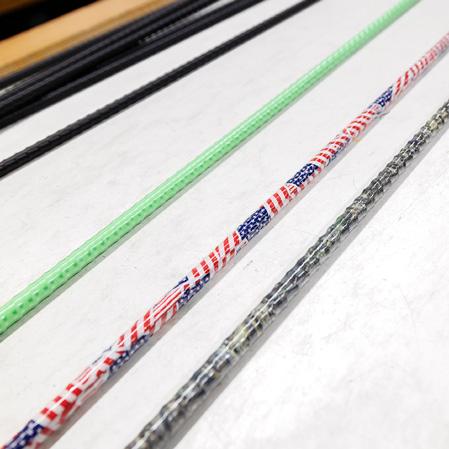





While others may be tempted to pull up and move to a bigger town, Tom’s happy with his base station in Mount Carroll.


“I’m happy right here,” he said. n


Manny’s Pizza co-owners Sharon Woodhurst (left), Wendy Sipe and Manny Castro are longtime familiar faces in the Savanna food business. The restaurant known for its familiar pizzas and tacos will observe 50 years of business this year.

 CODY
CODY
anny Castro has seen a lot happen in his hometown since the restaurant that bears his name first opened in May of 1973.
As Savanna continues to reinvent itself, evolving from a bustling transportation hub for river traffic into a tourist destination that earned it the top spot on a recent USA Today list of Best Small Towns for Adventure, Manny’s Pizza has remained a steady presence — a constant where customers have been getting a square deal on a pizza and filling up on tacos for five decades.
Castro remembers with fondness the many workers who would stop in from either the Milwaukee Road rail yard or the Savanna Army Depot either for a bite to eat or a drink at the bar. The yard and depot are gone, but his customers aren’t. He still welcomes regulars along with new faces who come in to soak in the sights of the town, a tourist stop known for its scenic spot along the Mississippi River and as a destination for families, sportsmen and bikers alike.
“It was full blast with railroads on both sides with the Burlington [Northern] and Milwaukee,” Castro recalls. “To me, there’s a lot of pride that we have lasted this long. There are a lot of businesses that are short-lived, especially in the food business. Besides the pride, we’ve had good workers. There’s only a handful in 50 years that we’ve ever had to fire, which I think is amazing considering how many workers we’ve had.
“We have pride in what we do for our customers.”
The name of the business may be Manny’s, but its half-century of success has by no means been a solo effort. With him at the beginning was Sharon Woodhurst, who he was married to at the time and who remains a co-owner, manager and banquet coordinator. Wendy Sipe, who first worked in the kitchen at Manny’s in the mid-1970s as a teenager, is Sharon’s sister and has worked her way up to also become a co-owner.
Owning the business as a trio has paid off not only by building a sense of familiarity and continuity with customers, but in establishing a sense of dedication with the families. When it gets busy — which is often — it’s not uncommon to see someone from the Castro, Woodhurst or Sipe families come in and help out.
“We can be real busy one night, and we’ll have relatives that will come in and any one of them will jump in and help us,” Sipe said. “When they know we’re overwhelmed, which does happen sometimes, they’ll help out because they’ve worked for us for a time or two: clearing a table, running food, or even making some pizzas.
“Without family, we wouldn’t be this.”
Castro, a Savanna native, began his career in the food business in 1965 as a sophomore in high school working for Rosemary Ballas at Ballas Tavern and Pizza, which served pizza in a style similar to the ones at Manny’s, which is known for its thin crust and square-cut pieces. Castro later worked for Hilda Close at Hilda’s Pizza, where he met Woodhurst. After a couple of years, they thought about having a pizzeria of their own. In 1973, they went into business.

finally had a place of its own when it moved to its current address of 211 Main St.
“We were hoping things would build up faster and faster,” Woodhurst said. “At the time, we didn’t know it was going to go how it did. We outgrew that spot and came here.”
The marriage of Italian and Mexican food wasn’t always part of Manny’s menu. The tacos came about a year or so later. Castro’s mother, Emilia, would come to Canavan’s kitchen and prepare them.
“When the tacos started, his mother would come from home and have everything ready from there,” Woodhurst said. “She’d have it in her boxes and we’d pick her up.”
Emilia used to make tacos for another bar in town well before Manny started in business, and they were a hit with customers. Taco orders also come with a small cup of the hot sauce Emilia originally concocted.
“It’s an odd combo, but it works out,” Castro added. “Normally you think pizza and pasta.”
Manny Castro, pictured
1967
learned to make pizza as teenager at Ballas Tavern and Pizza downtown. “Some people still remember them,” Castro said. “That's where I learned the pizza. I didn't think I would be doing that later. [Ours is] kind of like theirs, and I'm sure people were happy we didn't come up with a different type.” Today, the restaurant still sticks with its tried and true recipe.
While pizzas and tacos are the two big staples at Manny’s, salads are also on the menu — including a taco salad — along with chicken wings, nachos and bacon cheese French fries. Customers can also take home a frozen Manny’s pizza.
After more than 20 years of thriving business in Savanna, a second location opened in Fulton in 1995 as Manny’s Too – a play on words. Nearly a decade later, it expanded once more to Freeport, and then in Sterling in 2014 (that location closed in 2022), serving up the same signature dishes that made the original Manny’s a hit.
Opening day saw eight pizzas come out of the oven, but word got around, business picked up, and they earned a bigger slice of the local restaurant market.

“We had an idea of what we were doing, and just thought we’d look for a place that’s open downtown and see if we can start our own business,” Castro said. “It was just kind of like a shot-in-the-dark thing. We knew that it would take a while for the word to get out that two people that worked [at Hilda’s] now have their own place.”
Manny’s first location was at the back of the former Canavan’s Pub downtown, owned by Kenny and Martha Canavan. After a while, they outgrew the pub, and, in 1981, Manny’s
Manny’s success story hasn’t been without setbacks. On the early morning of Nov. 14, 2010, a fire destroyed the Savanna location, which included the business and four upstairs apartments; it was ruled an accident. While such a devastating blow would spell the end of some businesses, Manny’s story would have a happy ending. Space at the former Happy Joe’s pizzeria on the north side of downtown was rented out as a temporary spot for the business and Mannys’ pizzas and tacos kept on coming. About 100 people helped with the move and setting things up there, Castro said.
































































































































































































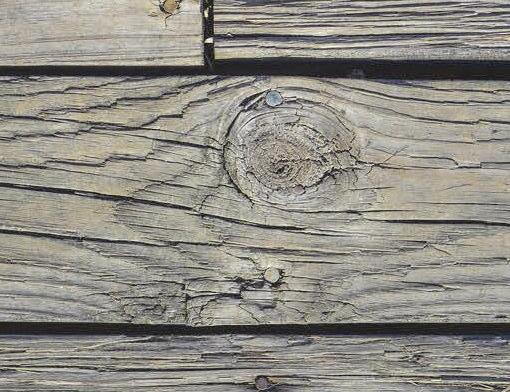












After 17 months, the rubble of the original Manny’s location was cleared, and a new and more spacious building with a dining room, ordering lobby, bar and banquet area was built, opening in 2012. Pictures from the fire hang near the entrance to the bar, which also shows the old building’s colorful mural that once greeted people entering downtown from the south.


“We were lucky that the place was there,” Castro said of the temporary digs. “I don’t know what we would have done.”
Savanna will always be home to Castro, a 1967 graduate of Savanna High School. Red-and-white Savanna Indians decor can be seen throughout the restaurant, including a framed wrestling singlet from the high school’s days as a state power in that sport. Quite the collection of framed local sports jerseys from surrounding schools also are on display in the lobby; most of them are from recent years, but the No. 32 Thomson Trojans basketball uni form is from Don Robinson, the star player of the Trojans’ 1972 Class A state final team. Robinson later had a successful coaching career with the Prophetstown girls basketball program, and also donated a orange-andblack jersey from that team to mount on the wall. Some jerseys come from places several miles away, such as one from the state power Galesburg girls basketball program donated by its longtime coach and Savanna High graduate Evan Massey.


With customers coming in from as far away as 50 miles or more, Castro said it’s not unusual to see a smile flash across a customer’s face when they see their hometown jersey on the wall. Manny’s food also brings a smile to their face — and posts to social media, where people share their thumbs up for the restaurant. That word of mouth, especially when its full of pizza and tacos, has been a good advertisement, restaurant manager Jessica Ervin said.
“Having social media has been good, too,” said Ervin, who is Castro and Woodhurst’s daughter. “While they’re here, they’ll post a picture of their food, and that’s a big thing — here’s where I’m at and here’s a picture of my food –and they’ll share it and send it to people. Sometimes they’re eating and they’ll post that they’re getting their pizza fix at Manny’s and then they get a text from their sibling or a parent that’s like, ‘Oh my gosh, you’re at Manny’s? Bring us home a taco or a pizza.’ People will come back up and say their sister just texted them and they want a pizza or six tacos.”
Customers from larger cities have commented to the staff about how much they enjoy the laid-back atmosphere.
“It’s a river town, and it’s always been a destination for the river,” Woodhurst said. “People like to come this direction from the Quad Cities and Galena. We get a lot of them. They’ll go here when they’re coming there, or they’ll go here when they’re coming back. That’s always been a plus and it’s always been good.”
 Manny’s wears its strong support of local high school sports on its walls, where a collection of jerseys and other items can be seen (left). It also supports the West Carroll High School athletic programs, based in Savanna (right). The wall gets redecorated with team pictures each year.
MANNY’S cont’d from page 26
MANNY’S cont’d to page 29
AIDEMWAHS@RETTUCC/RETTUCYDOC
MOC
Manny’s wears its strong support of local high school sports on its walls, where a collection of jerseys and other items can be seen (left). It also supports the West Carroll High School athletic programs, based in Savanna (right). The wall gets redecorated with team pictures each year.
MANNY’S cont’d from page 26
MANNY’S cont’d to page 29
AIDEMWAHS@RETTUCC/RETTUCYDOC
MOC
Sipe likes to chat with customers when she’s waiting tables, hearing their stories or how far they’ve come to visit Manny’s. On one memorable occasion, she met a couple who made Manny’s their destination for a first date.
“Over the weekend, we can have people from Davenport, Dubuque and Cedar Rapids,” Sipe said. “[One day] we had a couple stop by, and I said, ‘Where are you guys from?’ They said they were from the Quad Cities, and when I took the food to their table the lady said, ‘This is our first date.’ I said, ‘This is your first date, and he brought you here? I’m impressed.’ He said he wasn’t going to take her anywhere else. She said when he brought her here she thought they were going to have pizza, and she looked at the menu and saw the tacos.”
SAVANNA 211 Main St., 815-273-4259.
Hours: 11 a.m. to 8:30 p.m. Sunday, Tuesday, Wednesday, Thursday; 11 a.m. to 9:30 p.m. Friday and Saturday.

an important mission for the restaurant, especially to local school systems. Perhaps its most visible endeavors are through the primary sponsorships of high school basketball “shootout” events in Mount Carroll and Freeport. The Mount Carroll event, which takes place in mid-January at West Carroll Middle School, has been running for 16 years, and has hosted games over the years between schools from Illinois, Iowa, Wisconsin and Indiana. In addition, the gymnasium at West Carroll High School in Savanna is named in Castro’s honor, for all of his and his staff’s contributions through the years.
FULTON 305 11th Ave., 815-589-2520. Hours: 3 to 8:30 p.m. Sunday, Wednesday and Thursday; 3 to 9:30 p.m. Friday and Saturday.
FREEPORT 1121 W. Empire St., 815-232-7992. Hours: 11 a.m. to 9 p.m. Sunday and Thursday; 4 to 9 p.m. Tuesday and Wednesday; 11 a.m. to 10 p.m. Friday and Saturday.
Liking what she was hearing, Sipe brought over a couple of tacos just for them to try, which were a big hit with the lady.
Online: Find it on Facebook or go to mannyspizza.com
Sipe recalled the lady saying, “‘I would have never guessed of these two foods being together, but this date has been amazing!’ I was real impressed and she said they’ll be back.”
Giving back to the three communities they serve has been
Manny’s owners have had a 50th anniversary celebration in mind since late last year, and plan to have it some time in July; an announcement will be made on its website, Facebook and local media with specific details, as they were still being ironed out as of this magazine’s press time.
From generations behind the counter and in the kitchen to generations at its tables, Manny’s has been a family affair for decades, something Castro, Woodhurst and Sipe hope to see continue for years to come.
“I hope it keeps going strong, and the next generation is willing and can do a good job of it, too,” Woodhurst said. n
Wooden mallets, hand planes, chisels ... Kromer prefers to use the tools of the trade that craftsmen used back when people still rode horses. “I’ve always wanted to keep it in the traditional sense by telling people that they were made like they were in the 1850s,” he said
ALEX T. PASCHAL/APASCHAL@SHAWMEDIA.COMyou tell Jack Kromer that old tools have gone the way of the horse and buggy, he’ll tell you you’re only half right. They’ve just gone the way of the horse, and for Kromer, that’s right where they belong.
Kromer is the horse wrangler whose time, talent and tools have produced a herd of rocking horses from his home studio, and he does it with tools you’re more likely to see in antique shop than on a workbench.
The Mount Carroll native believes there’s still a lot to be learned from those old-school ways, and he’s more than happy to learn it as he perfects his craft, turning out hand-crafted rocking horses from inside his historic brick Italianate home, which dates back to 1854 long before power tools found a place in woodworkers’ shops. They still haven’t found a place in his.

KROMER cont’d to page 32


He wields simpler tools from simpler times to craft his creations. No cords to plug in or batteries to charge, just Kromer’s hands and his tools — chisels, mallets, hand planes — with elbow grease to keep them moving.

Kromer has sharpened his skills through the years — having been at it since his childhood 50 years ago, making primitive pieces with small knives and pieces of wood — but he’s still honing his craft. His goal? To be as good, maybe even better, than the makers of high-end horses he’s seen in catalogs. “I’m looking for a real handsome horse that a child would fall in love with,” Kromer said. “When it’s done, it doesn’t get pushed into a closet. I want it to look good enough to where they can leave it out by their fireplace, or wherever, and it becomes a nice piece of sculpture, too.”

Working from both a room inside his old home, and a summer kitchen attached to the back of it, Kromer spends several hours a week chipping, chiselling, carving and shellacking as he turns hardwoods into horses. When he’s not making horses, Kromer enjoys designing molds for metal castings, which are sent to a caster in Milledgeville to turn into a finished product, and ceramic decor pieces in equestrian, wildlife and celestial themes.

KROMER cont’d to page 33
























When Kromer starts a project, it’s more than just a sculpture. He sets out to create “a real handsome horse that a child would fall in love with,” he said ALEX T. PASCHAL/APASCHAL@SHAWMEDIA.COM
KROMER cont’d from page 32
The rocking horses, though, are his true love.
“They just make a beautiful sculpture,” he said. “I never get tired of the horses.”
Ever the ambitious carver as a teenager, Kromer once made a carving of William Shakespeare for an English project during his junior year of high school. Not long after that, inspired by riding horses on his grandparents’ farm in southern Illinois, Kromer made a rocking horse for a young niece of his.
in the pharmaceutical industry and, today, as a veterans employment representative for the State of Illinois. Kromer left Mount Carroll after high school and lived in several places throughout the country before returning home in early 2000. It was around that time that he also returned to rocking horses, after reading about how an old rocking horse from England was advertised in a Hammacher Schlemmer catalog for $15,000.
Kromer felt he could do better.
“English rockers were introduced in the 1850s and were an expensive toy back then,” Kromer said, but “they made their horses out of cheap poplar, like what we make the inside of furniture out of. The carving is very limited, and they gesso it with hard, concrete plaster of Paris and it gets sanded. I thought, ‘How can I compete against Hammacher Schlemmer importing English rockers?’ I can make a western rocker
While Kromer makes other items, horses are his favorite. “They just make a beautiful sculpture,” he said. “I never get tired of the horses.”
ALEX T. PASCHAL/APASCHAL@SHAWMEDIA.COMMore than 40 years later, that first mahogany horse, having been passed down through family members, finally made its way back to Kromer’s living room.



Kromer’s artistic talents earned him a job fresh out of high school, working at an antique store and wood repair shop in Mount Carroll owned by Ralph Kennedy.
“I carved for him and then got the notion that someday you’re not going to have these people who are going to know how to restore antiques like this,” Kromer said. “So we had to make them better, so they don’t have to be restored. We have modern glues and great hardwoods growing all around us.”
Through the years, art remained a steady hobby, even as he worked in jobs
out of better wood — cherry, walnut, white oak — and then we can really hand carve it to make it look more realistic instead of being gaudy.”
Using the same tools as the carvers of generations ago did — but with better wood, from local supplier Johnson Creek Hardwoods — Kromer went to work. Sometimes he designs his own pieces, other times he’ll be inspired by pictures he sees in books and art portfolios. His collection of books includes compilations of artists from the early 1900s. Many of them, Kromer said, used to have studios next to draft horses, who would pull carriages up and down the street. The horses were big and muscular with exaggerated saddles and huge buckles.
Kromer’s horse creations come in many different sizes, from those large enough to seat a young child or small enough for a 6-inch doll to be set on it. The larger ones take the most time, capturing each feature, from the hairs of the mane to each muscle and all the way down to the hooves.

As for types of wood, Kromer usually sticks to three types: black walnut, cherry or white oak. Black walnut is his favorite. “It’s got real good ‘carvability,’” he said. “It’s very stable, and the price, up until not too long ago, wasn’t too bad.
KROMER cont’d to page 34


Modern tools would probably make the jobs go quicker, but Kromer wouldn’t like it any other way than how he does it.





“I’ve always wanted to keep it in the traditional sense by telling people that they were made like they were in the 1850s, with the mallet and chisel,” Kromer said. “I don’t have the affinity for the power tools, the noise and the dust. It just creates a whole different set of problems. Black walnut dust is especially not good for you. You can start it and stop it when you want to. You can let the chips fly, but just sweep them up later.”
His tools aren’t his only nods to the past. Kromer feels right at home with history, literally. His house once belonged to Nathaniel Halderman, Mount Carroll’s first mayor. Halderman also established the first mill in town along what was called the Wakarusa River — today named the Carroll Creek. The house’s architect, Jacob Emmert, constructed several buildings in town, including the limestone house which is now part of Stone House Park on the bottom of the big hill north of town. Halderman’s two-story home has changed owners several times, and was placed on the National Register of Historic Places in 1980.
One of Kromer’s most recent projects is making replicas of a circa-1910 Lithuanian rocking horse he once saw at a antique store in Albany. They are about 1-1/2 feet tall by 2-1/2 feet wide and can fit a child up to about 2 years old. Some of these works have been displayed at the Outside the Lines
Art Gallery in Galena and Dubuque. “I thought it was just so darn cute, that I wanted to reproduce it,” Kromer said.


Kromer also makes flat ceramic pieces, all hand-built and glazed. Each piece is constructed using a the Raku firing process, which dates back to 16th-century Japan; pieces are taken from the kiln while still glowing red hot and then placed inside material that can catch fire to give it a unique display of color.
Kromer sells some of his works at the Mount Carroll Farmer’s Market downtown over the summer, where he not only gets to show off his creations but also educates those interested in what it’s like to work on carving rocking horses the old-fashioned way. Kromer has seen plenty of young kids enjoy the rocking horses in particular.
He took one of his larger horses to display at the Mount Carroll Christmas Walk in December, where several kids took the opportunity to climb on for fun photo ops. It’s moments like this that make Kromer feel that his hobby and passion is well worth the time and effort.
“It makes you feel real rewarded,” he said. “It makes you feel like you’re making an impression on a child, and that he’s going to remember it for the rest of his life.” n
